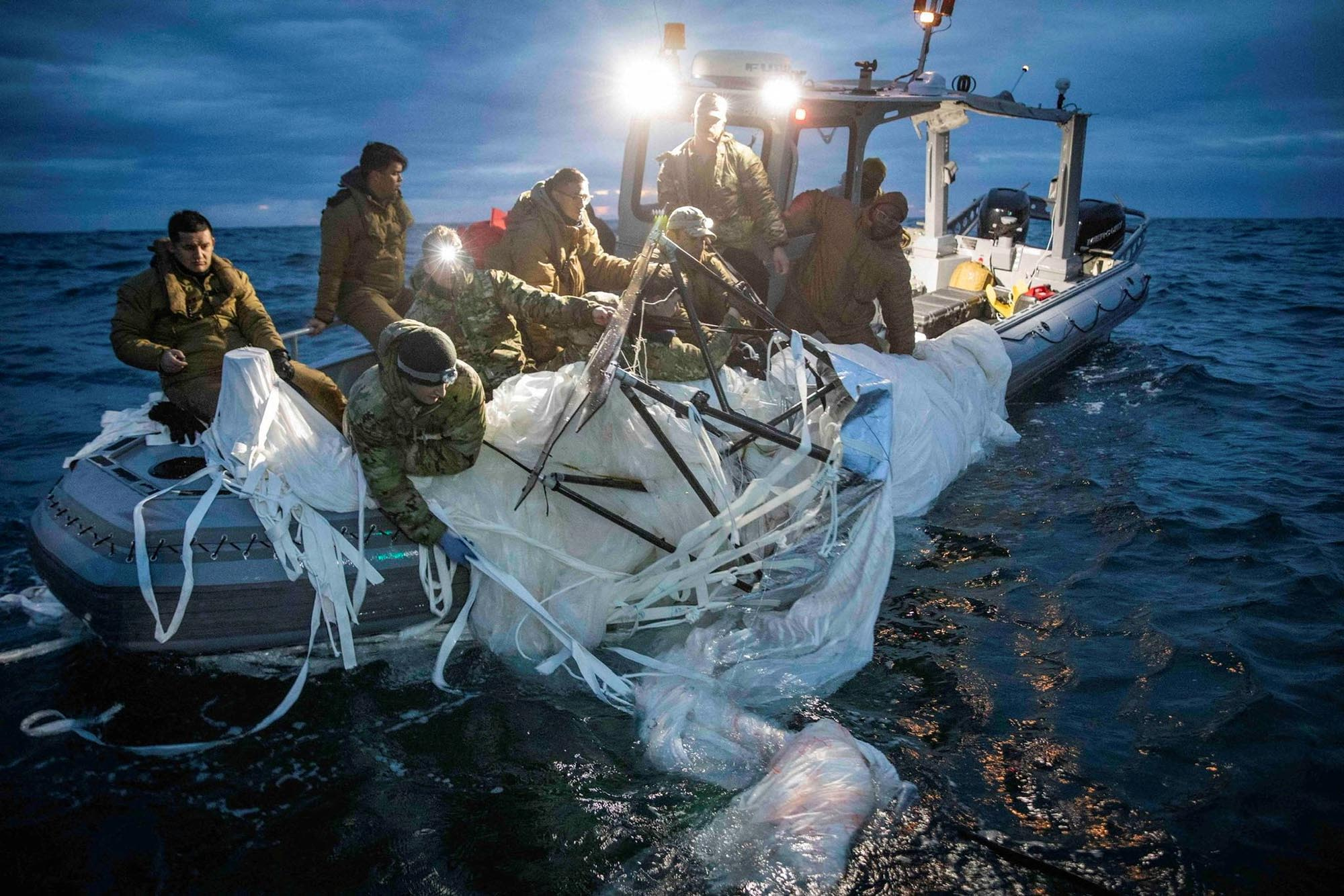The Past and Present Involvement of the United States Military in the Sex Trade of East Asia
By Jackie Zhang · Cogito XIV ·Content warning: this article discusses sensitive topics such as sexual assault. Please note that some of the content is difficult to read.
As the country with the largest number of military bases in the world, the United States of America has 800 bases in nearly eighty foreign countries and territories. These stations, created to promote so-called “peace” and “democracy,” have become a source of abusive activity that serves to exert U.S. hegemony and power over foreign nations. In many parts of East and Southeast Asia, these military bases have paved the way for extensive prostitution, a business that has grown increasingly lucrative. Asia has been home to the American-enforced sex trade ever since World War II. American officers have a history of informally encouraging sex with, and oftentimes rape of, Asian women, justified by the belief that it kept soldiers’ spirits high during war times. As a result, prostitution has become a crucial part of local and national economies wherever American troops are deployed. The exploitation of Asian women and girls has long been used as a source of sexual gratification for American soldiers with little to no consequence. The history of the American military’s activities in Japan, Vietnam, and South Korea demonstrates the close linkage between the United States military and the violent sex trade in East and Southeast Asia.
Following Japan’s surrender in World War II, a system of “comfort women” or prostitutes was set up with the silent approval of U.S. military officials for American soldiers. Americans allowed this system to operate and encouraged Japan’s previous brutal treatment of women across Asia. Documents demonstrate how brothels, houses where men could visit sex workers, were rushed into operation as U.S. forces poured into Japan beginning in August 1945 with tens of thousands of women being employed to provide cheap sex work to American troops. Police officials and Tokyo businessmen created a network of brothels with the support of the Recreation and Amusement Association (RAA) for the U.S. soldiers, operating with government funds. Gen. Douglas MacArthur shut down brothels in this area when a quarter of the American troops stationed there had contracted sexually transmitted diseases.
Okinawa is another area in Japan that has been heavily impacted by the sex trade for decades. Sex workers in the area make the specific and deliberate choice to not take U.S. soldiers as customers no matter how meager business becomes, and for good reason. In this southern district, U.S. bases occupy nearly 20 percent of the crowded main island as part of Tokyo’s long-standing alliance with Washington. There are fourteen American military installations on Okinawa housing roughly 25,000 U.S. troops. These bases have historically been controversial and damaging to the area. 13,000 tons of poison gas including sarin and VX leaked from a military storage base in Okinawa shortly after the Vietnam War leading to environmental damage for many years afterward. In an infamous case in 1995, three high-ranking U.S. military personnel gang-raped a twelve-year-old Okinawan schoolgirl after deciding against paying for a prostitute due to the cost. They then fled to the base and left her to die. This incident along with numerous other instances of extreme sexual violence against non-sex workers and sex workers alike have continually plagued Okinawans. Toru Hashimoto, mayor of Osaka and co-leader of the Japan Restoration Party, reportedly told a U.S. military commander that “hot-blooded” American soldiers should use “legal adult entertainment” to control their sexual urges. His careless remarks caused enormous outrage across Japan. “We’ve been living with military crimes since 1945,” says Chuuji Chinen, a journalist who has been relentlessly pushing against U.S. bases. “If [Hashimoto] is concerned about us he should tell the soldiers to get out instead of asking local women to service them.” The looming specter of prostitution and the sex trade has haunted Japan for almost a century with the aid of the U.S. military.
The Vietnam War (1955-1975), a portion of the decades-long Cold War, was fought between Soviet-backed communist North Vietnam and anti-communist South Vietnam supported by the United States. As if the destruction from the war was not enough, Vietnamese women and girls in the sex trade were targeted by state-sanctioned sexual violence. By the end of the Vietnam War in 1975, it was estimated that there were 500,000 women involved in the sex trade. During the earlier years of American presence in Vietnam, matters of prostitution were dealt with privately and with individuals. Officially, the South Vietnamese Government declared prostitution illegal and the Social Welfare Office arrested many sex workers. However, by 1966, the U.S. military had established official military brothels within their base camp perimeters at An Khe, Lai Khe, and Pleiku in order to stop the spread of sexual diseases and to prevent soldiers from going to at-risk brothels. The forced relocation of rural Vietnamese populations because of the Strategic Hamlet Program, defoliation of farmlands, and ‘free fire zones,’ resulted in the displacement of massive amounts of peasants who fled to the cities and the areas surrounding military bases. Through imperialistic economic coercion aided by the U.S. military and government, many Vietnamese women were forced to turn to prostitution near the camps in order to support themselves and send money back home. In each of these places, hundreds of nightclubs, massage parlors, and bathhouses lined the streets, featuring local female entertainers awaiting the arrival of American GIs. Le Ly Hayslip, a former Vietnamese sex worker, described in her autobiography how the $400 offered to her was needed to support her family. ‘[M]any of these girls … were rape victims like me who despaired of a proper marriage,’ she remarked. As a South Vietnamese government employee stated, “The Americans need girls; we need dollars. Why should we refrain from the exchange? It’s an inexhaustible source of U.S. dollars for the state.”
During and following the Korean War, the United States army participated in regulated prostitution services in South Korean military bases. Much like Vietnam, prostitution has been declared illegal in Korea since 1948, but women in the sex trade were crucial to Korean-American relations during the Korean War. After the surrender of Japan to the Allies, the Soviet Union and America commanded power over North Korea and South Korea, respectively. From 1945 to 1948, The United States Armed Forces, led by General John R. Hodge, occupied and liberated South Korea and within it, took over the Imperial Japanese comfort women stations. In order to protect U.S. soldiers from contracting sexually-transmitted diseases from prostitutes and to regulate the bodies of prostitutes, the U.S. government relocated these service places near military bases. Following the Korean War, there was an outbreak of extreme poverty and chaos. Women were forced into sex work as a result of economic pressures in order to support themselves and their families. Soon, military camp towns became rife with prostitution. According to professor Lee Young-hoon, an economic professor at Seoul National University, the total estimated number of Korean prostitutes was between 26,000 to 39,000 for American soldiers from 1955 to 1966. During the 1960s, sex work generated nearly 25% of the South Korean Gross National Product (GNP). Park Chung-hee, who ruled South Korea during the 1960s and 1970s, encouraged the sex industry in order to generate revenue, particularly from the U.S. military. With increased amounts of prostitution came increased amounts of sexual violence. In 1992, Yun Geum-i, a camp town sex worker in Dongducheon, was brutally killed and raped by U.S. servicemen. However, it was the aforementioned rape of an Okinawan schoolgirl in 1995 by three members of the U.S. military that truly ignited national outrage and debate about military-related sexual violence against women across South Korea and East Asia. Anti-American sentiment permeated through Korea during the early 1990s, and eventually, sex workers became the face of the movement. In the past few decades, South Korean women who were former prostitutes have sought compensation and have fought to be recognized as war victims. The battle against U.S. military-sanctioned prostitution in South Korea continues to this day.
The global sex trade, enforced by the U.S. military, has impacted the lives of women and girls all across East and Southeast Asia. The countries of Japan, Vietnam, and South Korea are just three of many countries that have been uniquely devastated by the American troops who have invaded and occupied their countries. There has been increased pressure for Washington to stop the sexual violence committed by the military. A 2014 Pentagon report estimated there were 26,000 assaults inside the U.S. armed forces around the world that year. Despite the bleak circumstances, many Asian women across the continent have dedicated their lives to uplifting and supporting current and former sex workers so harmed by U.S. imperialism. Durebang or “My Sister’s Place” was founded in 1986 by Yu Boknim and Faye Moon, Korean social activists. It has continually opened its doors to former prostitutes, offering them compassion and community in a world that has given them nothing but alienation and oppression. They also aided younger women looking for an escape from the industry. For decades, other key leaders of Asian women’s movements such as Takazato Suzuyo of Okinawa and Matsui Yayori, the well-known Japanese journalist and feminist activist, Aida Santos, and women’s organizations like GABRIELA of the Philippines have sought to bring the truth about these horrific crimes of U.S. military prostitution to light. Asian feminist activists are engaged in the grassroots of the struggle and are spurred on by their hope and revolutionary optimism for a better world for women everywhere, but there is still a long way to go for global women’s liberation. The sex trade worldwide has been a cornerstone of colonialism to systemically provide a supply of women for military soldiers to exploit and rape. It has led to the increased fetishization and commodification of Asian women’s bodies in the U.S. and globally. “The more I think about my life, the more I think women like me were the biggest sacrifice for my country’s alliance with the Americans,” Jeon, a 70-year-old Korean former sex worker said in a New York Times interview, “Looking back, I think my body was not mine, but the government’s and the U.S. military’s.”





